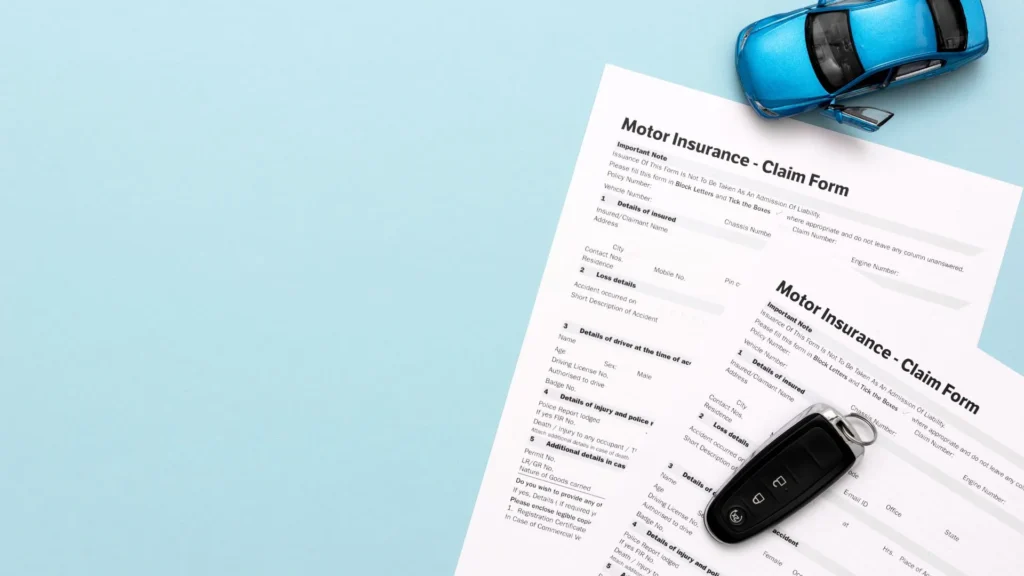Does my auto insurance cover rental cars? In most circumstances, your auto insurance covers rental cars and you won’t be required to pay for duplicate coverage. There may be situations where it can pay off to add rental car insurance to your personal auto insurance, so it’s important to review the coverages.
The best way to ensure you have the right rental car insurance is to understand your options before walking into the rental car counter. Many drivers must know that personal auto insurance, the credit card used to book the rental car, or other insurance policies already cover rental car coverage. Car insurance with Beem covers damage to your vehicle, damage to other vehicles or property, and injuries to yourself or others.
Do I Need Insurance to Rent a Car?
Liability car insurance is the bare minimum requirement before driving a rental car. In most states, it is a legal requirement to carry liability insurance to cover injuries and property damage that you might cause to others accidentally. Aside from health insurance, you’ll need other types as well. In case of an accident, that coverage includes assistance with repairing your rental car or paying your medical bills.
The rental car company can offer you some of these types of coverage. You might already have coverage through existing insurance policies such as:
- Insurance policy for your vehicle
- When you booked the rental car, you used your credit card
- Having health insurance
- Insuring your travels
- Car insurance for non-owners
- Insurance for your home, condo, or rental unit
- Insurance under an umbrella
The rental car company won’t require you to purchase duplicate coverage if you already have coverage through one of those policies. However, you don’t have adequate car insurance coverage through your personal insurance, credit cards, or other insurance plans. In that case, you must purchase rental car insurance to ensure you’re adequately protected.
Also Read: Does Car Insurance Cover the Car or the Driver
Does My Auto Insurance Cover Rental Cars?
If you wonder whether your auto insurance covers rental cars, it is crucial to check your options. In general, the coverage limits and deductibles of your car insurance policy also apply to rental cars. However, your car insurance does not cover rental cars for personal use, such as during vacations. You cannot use a rental car for business purposes like meeting a client.
Sometimes, your personal auto insurance may not cover your rental car. Rental car companies usually charge a “loss of use” fee for lost income, which is not covered by personal car insurance. The following is a list of some of the most common coverage types for rental cars:
Liability Auto Insurance
If you accidentally damage someone’s property with a rental car, such as backing into their fence, your liability car insurance pays for it. You will be covered as long as your auto insurance policy limits are sufficient.
As an example, if you have liability insurance with $100,000 limits for bodily injury to one individual, $300,000 limits for bodily injury to more than one individual, and $100,000 limits for property damage per accident (known as 100/300/100), you’ll be covered if an accident occurs in your rental car up to those limits.
Collision and Comprehensive Insurance
In the event of an accident, theft, fire, flood, collision with an animal, falling objects, severe weather, or vandalism, collision, and comprehensive insurance reimburses you for any damage done to your rental car. In the case of a car insurance claim for a rental car, your collision or comprehensive deductible will apply.
Personal Injury Protection (PIP)
If you get injured while driving a rental car, your personal injury protection (PIP) and medical payments coverage will cover your medical expenses and those of your passengers.
For example, PIP coverage can cover expenses such as medical bills and lost wages if you are injured while driving a rental car. It can also cover replacement services for housecleaning and childcare because you cannot do them due to your injuries.

How Do Rental Car Insurance Options Differ?
Several options are available when buying rental car insurance from a company. You can find a variety of coverage types here.
- Waiver of collision damage
- You are covered for damage or theft to your rental car if you purchase a collision damage waiver (CDW). LDW is another name for this coverage. CDWs usually cost about $30 per day.
Purchasing a CDW may be a good option if you lack the following:
- Insurance for a personal vehicle
- Rental car coverage on a credit card
- Insuring a rental car for third parties
Consider the following scenarios when purchasing a CDW:
- You don’t want your insurance costs to increase if an accident is caused by you while driving a rental car.
- Trying to find gaps in your car insurance and credit card coverage doesn’t make sense.
- The last thing you want is to be responsible for any additional charges due to vehicle damage.
- Your car insurance or credit card company should not reimburse you for any damage you pay out of pocket.
A rental car company that declines a CDW may charge you for the following expenses:
- Administration fees: As part of the claims process, there are additional costs involved.
- A decrease in value: As a result of the repairs, the value of the rental car decreases.
- Taking away the use of something: Renters lose this money while their rental cars are being repaired.
- In towing: If your rental car is undrivable after an accident, you may be charged for towing.
Supplemental Liability Insurance
If your auto insurance does not cover rental cars, you can buy supplemental liability protection (SLP) from the company. It covers property damage and bodily injury to others caused by you in case of an accident. The liability insurance on your rental car can pay for another driver’s medical expenses if you crash into their car. Depending on the company, this coverage may be referred to by a different name. “Liability insurance supplement” (LIS) is the name of Hertz’s liability coverage.
It depends on the company what the policy limits are. Hertz, for example, offers liability coverage up to $2 million in California and Florida, while SLP from Alamo and Enterprise offers coverage up to $300,000. It is suggested to compare car insurance quotes to get the best deal for your budget. Using Beem to find the best insurance quotes can help you make the right choice.
also know about: Car Insurance Cover Rental
Is Car Rental Company Required to Provide Liability Insurance?
It is possible that your auto insurance covers rental cars with adequate liability coverage. In the event of an accident while driving a rental car, personal accident insurance (PAI) pays your medical bills and those of your passengers. PAI typically covers the following:
- Deaths and dismemberments caused by accidents.
- Bills for ambulance services.
- The cost of medical care.
Do I Require Personal Accident Insurance For Rental Cars?
Depending on your car and health insurance policies, you may already have adequate PIP and MedPay coverage.
- Insurance coverage for personal effects
- If stolen from your rental car, PEC covers your luggage, laptop, and other personal belongings.
Coverage may not apply to certain types of personal items. Items such as the following are excluded from Hertz’s PEC coverage:
- Animals
- Bicycles
- Eyeglasses, contact lenses, and sunglasses
- Hearing aids
- Money
- Prosthetic devices
Does Car Rental Company Cover Personal Effects?
In many cases, your homeowner’s, condo, or renters insurance policy already covers the theft of personal items from a rental car. Furthermore, there are certain roadside emergencies that are covered by rental car insurance.
- Tire change
- Fuel delivery if you run out of fuel
- Dead battery jumpstarts
- If you are locked out of your rental car, call a locksmith
- Towing
Your personal car insurance policy, credit card, or auto club already offers adequate roadside assistance coverage (such as AAA).
Rental Car Insurance Alternatives
If you have auto insurance that covers rental cars, you should know your options before getting to the rental car counter. If you already have coverage, you don’t need to purchase it from the rental car company. Consider these other policies in addition to your car insurance.
Credit Card Coverage
If you use your credit card to pay for the rental car, the company might offer rental car coverage. Credit cards offer primary and secondary insurance for rental cars. The differences between the two are as follows:
- Primary Coverage: The credit card company will pay out the claim first. A deductible on your car insurance policy will not be required, and you will not have to contact your insurance company.
- Secondary Coverage: This means that your credit card will only cover the unused portion of your car insurance coverage. Credit cards, however, might reimburse you for towing charges, loss of use fees, and the deductible. The secondary coverage offered by most credit cards is the most common type.
Conclusion
So, does my auto insurance cover rental cars? Purchasing rental car insurance may not be necessary if your auto insurance policy offers similar coverage. You may also want to avoid taking out a policy if your existing health and homeowners insurance policies overlap with what is offered at the counter. If you don’t have other options or need to fill gaps in your existing policies, renting car insurance from the rental car company might be a good idea. To cover any damages to the rental car, consider purchasing the CDW from the rental company if you do not have collision or comprehensive insurance. Beem offers an online comparison tool to help you find the best policy for your needs. Consider the coverage options, deductibles, and premiums offered by different insurance companies and pick the best one that suits you.





























